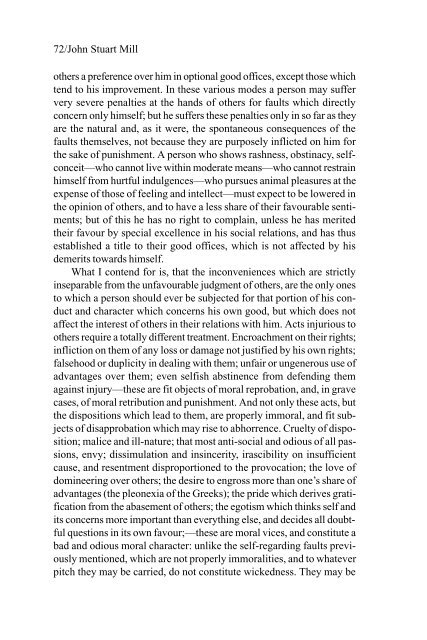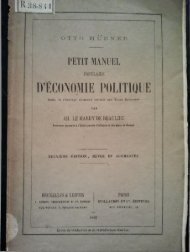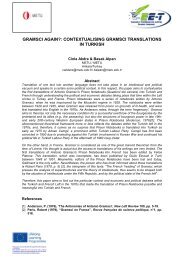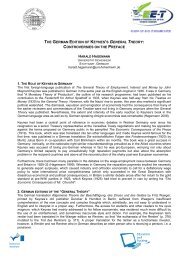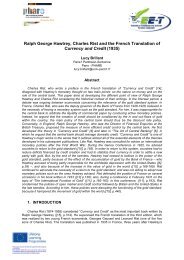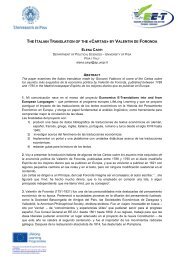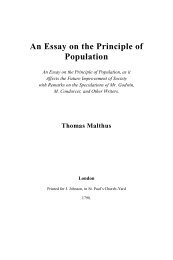On Liberty John Stuart Mill Batoche Books
On Liberty John Stuart Mill Batoche Books
On Liberty John Stuart Mill Batoche Books
Create successful ePaper yourself
Turn your PDF publications into a flip-book with our unique Google optimized e-Paper software.
72/<strong>John</strong> <strong>Stuart</strong> <strong>Mill</strong>others a preference over him in optional good offices, except those whichtend to his improvement. In these various modes a person may suffervery severe penalties at the hands of others for faults which directlyconcern only himself; but he suffers these penalties only in so far as theyare the natural and, as it were, the spontaneous consequences of thefaults themselves, not because they are purposely inflicted on him forthe sake of punishment. A person who shows rashness, obstinacy, selfconceit—whocannot live within moderate means—who cannot restrainhimself from hurtful indulgences—who pursues animal pleasures at theexpense of those of feeling and intellect—must expect to be lowered inthe opinion of others, and to have a less share of their favourable sentiments;but of this he has no right to complain, unless he has meritedtheir favour by special excellence in his social relations, and has thusestablished a title to their good offices, which is not affected by hisdemerits towards himself.What I contend for is, that the inconveniences which are strictlyinseparable from the unfavourable judgment of others, are the only onesto which a person should ever be subjected for that portion of his conductand character which concerns his own good, but which does notaffect the interest of others in their relations with him. Acts injurious toothers require a totally different treatment. Encroachment on their rights;infliction on them of any loss or damage not justified by his own rights;falsehood or duplicity in dealing with them; unfair or ungenerous use ofadvantages over them; even selfish abstinence from defending themagainst injury—these are fit objects of moral reprobation, and, in gravecases, of moral retribution and punishment. And not only these acts, butthe dispositions which lead to them, are properly immoral, and fit subjectsof disapprobation which may rise to abhorrence. Cruelty of disposition;malice and ill-nature; that most anti-social and odious of all passions,envy; dissimulation and insincerity, irascibility on insufficientcause, and resentment disproportioned to the provocation; the love ofdomineering over others; the desire to engross more than one’s share ofadvantages (the pleonexia of the Greeks); the pride which derives gratificationfrom the abasement of others; the egotism which thinks self andits concerns more important than everything else, and decides all doubtfulquestions in its own favour;—these are moral vices, and constitute abad and odious moral character: unlike the self-regarding faults previouslymentioned, which are not properly immoralities, and to whateverpitch they may be carried, do not constitute wickedness. They may be


